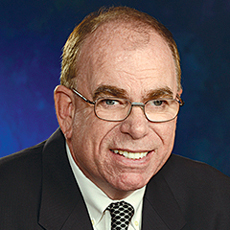
The CEO finalist was a slam dunk.
He was tall, handsome, confident, had that board room presence, carried Ivy League credentials — and had charisma to burn. The board members quickly agreed it was the easiest hiring decision they’d ever made. And then things went terribly wrong.
If this scenario sounds all too familiar, take comfort in knowing you’re not alone. A lot of chief executives don’t pan out. In fact, about a quarter of all Fortune 500 chiefs who leave their posts each year do so involuntarily. The harsh reality is that finding the right person to run any senior living organization is hardly an exact science.
Moreover, many of the rules of thumb don’t hold up under review. Look for a charismatic extrovert? Well, it turns out introverts tend to get better results. Find someone with an error-free past? Nearly half of the high performers (45%) have endured a major career blowup that either cost them their job or a bundle to fix. Pick for educational pedigree? Only 7% of the top-performing bosses received an undergraduate education at one of the Ivy League schools. In fact, 8% didn’t graduate from college at all. These recent findings come courtesy of the CEO Genome Project — a decade-long investigation into the characteristics that distinguish high performers.
As investigators noted in their study, “What makes candidates look good to boards has little connection to makes them succeed in the role.”
Well if that’s the case, what is it then that makes these candidates succeed? Researchers found that those who do better tend to exhibit four distinct behaviors. Specifically, they:
- Are decisive (they don’t wait for the perfect solution, and they realize that a wrong choice often trumps no decision).
- Engage for impact (they work to understand stakeholders’ priorities and align them around a value-creation goal).
- Adapt proactively (with an eye toward the long term, while treating mistakes as learning opportunities).
- Deliver results in a reliable fashion (steadily following through on commitments)..
For full findings, see the May-June issue of Harvard Business Review.
To be sure, there is no universal blend for these four ingredients. Your firm, its place in the field and changing market conditions are going to largely influence which mix works best. But their use can clearly make a difference.
Moreover, it’s not just CEOs who benefit by using them. All leaders who use them tend to see better results, the authors found.
John O’Connor is editorial director of McKnight’s Senior Living. Email him at [email protected].



